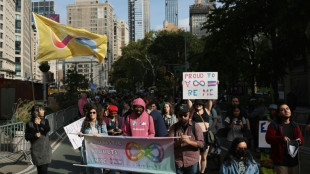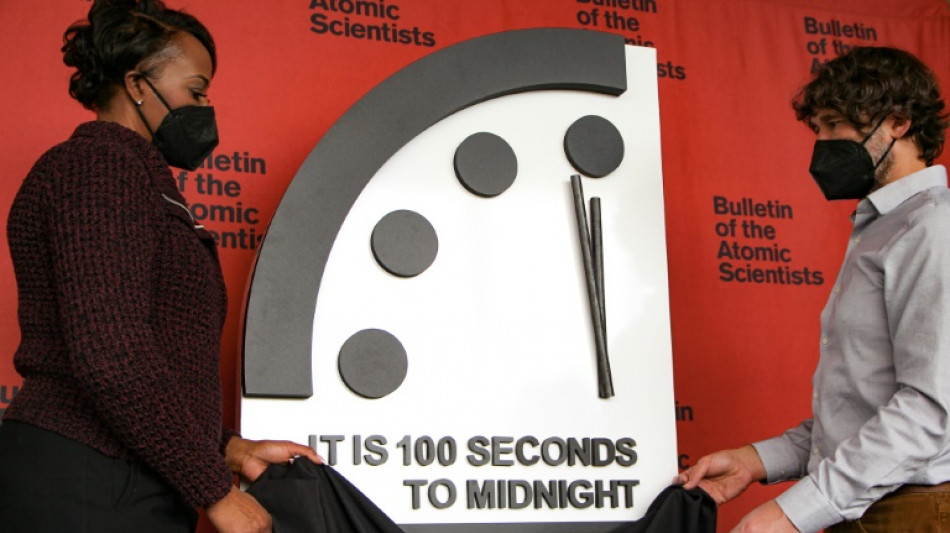
-
 India's Iyer says 'getting better by the day' after lacerated spleen
India's Iyer says 'getting better by the day' after lacerated spleen
-
Yesavage fairytale carries Blue Jays to World Series brink

-
 Bank of Japan keeps interest rates unchanged
Bank of Japan keeps interest rates unchanged
-
Impoverished Filipinos forge a life among the tombstones

-
 Jokic posts fourth straight triple-double as Nuggets rout Pelicans
Jokic posts fourth straight triple-double as Nuggets rout Pelicans
-
UN calls for end to Sudan siege after mass hospital killings

-
 Teenage Australian cricketer dies after being hit by ball
Teenage Australian cricketer dies after being hit by ball
-
As Russia advances on Kupiansk, Ukrainians fear second occupation

-
 Trade truce in balance as Trump meets 'tough negotiator' Xi
Trade truce in balance as Trump meets 'tough negotiator' Xi
-
China to send youngest astronaut, mice on space mission this week

-
 Yesavage gem carries Blue Jays to brink of World Series as Dodgers downed
Yesavage gem carries Blue Jays to brink of World Series as Dodgers downed
-
With inflation under control, ECB to hold rates steady again

-
 Asia stocks muted with all eyes on Trump-Xi meeting
Asia stocks muted with all eyes on Trump-Xi meeting
-
Personal tipping points: Four people share their climate journeys

-
 Moto3 rider Dettwiler 'no longer critical' after crash: family
Moto3 rider Dettwiler 'no longer critical' after crash: family
-
US economy in the dark as government shutdown cuts off crucial data

-
 Trump orders nuclear testing resumption ahead of Xi talks
Trump orders nuclear testing resumption ahead of Xi talks
-
'Utter madness': NZ farmers agree dairy sale to French group

-
 Samsung posts 32% profit rise on-year in third quarter
Samsung posts 32% profit rise on-year in third quarter
-
30 years after cliffhanger vote, Quebec separatists voice hope for independence

-
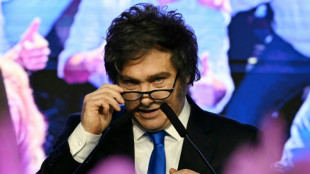 Taxes, labor laws, pensions: what Milei wants to do next
Taxes, labor laws, pensions: what Milei wants to do next
-
South Sudan's blind football team dreams of Paralympic glory

-
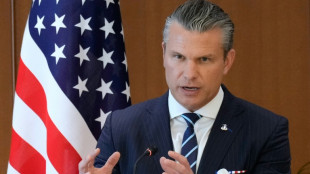 US says 4 killed in new strike on alleged Pacific drug boat
US says 4 killed in new strike on alleged Pacific drug boat
-
What we do and don't know about Rio's deadly police raid
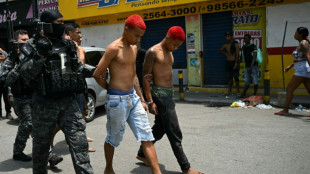
-
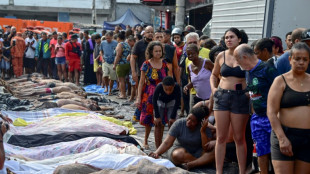 'They slit my son's throat' says mother of teen killed in Rio police raid
'They slit my son's throat' says mother of teen killed in Rio police raid
-
Arteta hails 'special' Dowman after 15-year-old makes historic Arsenal start

-
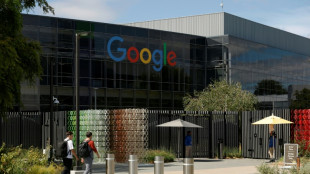 Google parent Alphabet posts first $100 bn quarter as AI fuels growth
Google parent Alphabet posts first $100 bn quarter as AI fuels growth
-
Underwater 'human habitat' aims to allow researchers to make weeklong dives

-
 Maresca slams Delap for 'stupid' red card in Chelsea win at Wolves
Maresca slams Delap for 'stupid' red card in Chelsea win at Wolves
-
'Non-interventionist' Trump flexes muscles in Latin America

-
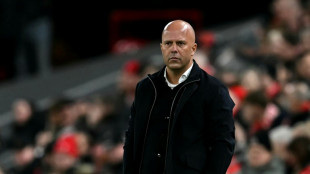 Slot defends League Cup selection despite not meeting 'Liverpool standards'
Slot defends League Cup selection despite not meeting 'Liverpool standards'
-
'Poor' PSG retain Ligue 1 lead despite stalemate and Doue injury

-
 Liverpool crisis mounts after League Cup exit against Palace
Liverpool crisis mounts after League Cup exit against Palace
-
Kane scores twice as Bayern set European wins record

-
 Radio Free Asia suspends operations after Trump cuts and shutdown
Radio Free Asia suspends operations after Trump cuts and shutdown
-
Meta shares sink as $16 bn US tax charge tanks profit
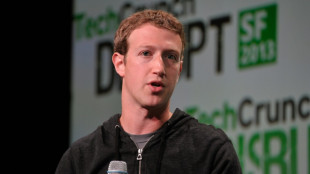
-
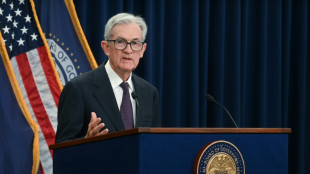 Dollar rises after Fed chair says December rate cut not a given
Dollar rises after Fed chair says December rate cut not a given
-
Google parent Alphabet posts first $100 bn quarter as AI drives growth
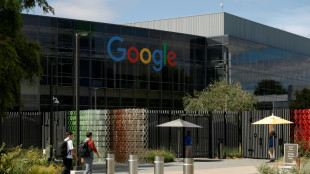
-
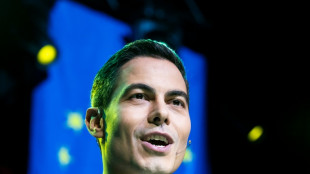 Rob Jetten: ex-athlete setting the pace in Dutch politics
Rob Jetten: ex-athlete setting the pace in Dutch politics
-
Juve bounce back after Tudor sacking as Roma keep pace with leaders Napoli

-
 Favorite Sovereignty scratched from Breeders' Cup Classic after fever
Favorite Sovereignty scratched from Breeders' Cup Classic after fever
-
Doue injured as PSG held at Lorient in Ligue 1

-
 Leverkusen win late in German Cup, Stuttgart progress
Leverkusen win late in German Cup, Stuttgart progress
-
Jihadist fuel blockade makes life a struggle in Mali's capital
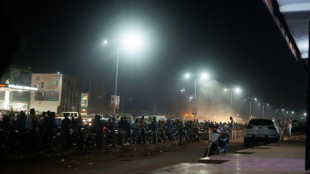
-
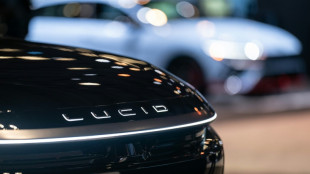 Uber plans San Francisco robotaxis in Waymo challenge
Uber plans San Francisco robotaxis in Waymo challenge
-
Paramilitary chief vows united Sudan as his forces are accused of mass killings

-
 Trump, Xi to meet seeking truce in damaging trade war
Trump, Xi to meet seeking truce in damaging trade war
-
Divided US Fed backs second quarter-point rate cut of 2025
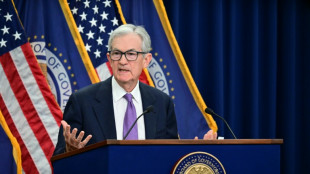
-
 'Amazing' feeling for Rees-Zammit on Wales return after NFL adventure
'Amazing' feeling for Rees-Zammit on Wales return after NFL adventure
-
'Cruel' police raids help, not hinder, Rio's criminal gangs: expert


Glimmers of hope, but Doomsday Clock stuck at 100 seconds to midnight
The "Doomsday Clock," representing the judgment of leading science and security experts about perils to human existence, remains at 100 seconds to midnight this year, with advances like Covid-19 vaccines balanced by rising misinformation and other threats.
Bulletin of the Atomic Scientists president Rachel Bronson declared Thursday the world was no safer this year than two years ago, when the clock's hands were moved to their current position.
"If humanity is to avoid an existential catastrophe, one that would dwarf anything it has yet seen, national leaders must do a far better job of countering disinformation, heeding science and cooperating," she told reporters on the 75th anniversary of the clock's initial unveiling.
The fact that it hasn't shifted closer to midnight does not imply threats have stabilized, the group said in a full statement.
"On the contrary, the Clock remains the closest it has ever been to civilization-ending apocalypse because the world remains stuck in an extremely dangerous moment."
The Bulletin was founded in 1945 by Albert Einstein, J Robert Oppenheimer and other scientists who worked on the Manhattan Project which produced the first nuclear weapons.
The idea of the clock symbolizing global vulnerability to catastrophe followed in 1947.
Its time is set by the organization's board, with the support of its board of sponsors, which includes 11 Nobel laureates.
In its statement, the Bulletin noted hopeful developments at the start of 2021, including the renewal of the New START arms control agreement between the United States and Russia.
But international tensions continue to loom ominously, including most recently over Ukraine. The United States, Russia and China meanwhile continue their march to develop hypersonic weapons.
- Nice words, but little climate action -
No country meanwhile remains immune to threats to democracy, the Bulletin said, "as the January 6, 2021 insurrection at the US Capitol demonstrated."
More than 10 percent of those charged with crimes related to the riot were active or retired service members, underscoring extremism in the military.
On climate, COP26 in Glasgow offered positive rhetoric but relatively little action.
Encouragingly, several countries announced net-zero carbon dioxide targets by 2050, but getting there would require immediate divestment from fossil fuels, investment in renewables, upgrading infrastructure and shifting land use and agriculture practices.
"The past year has seen a staggering onslaught of climate disasters," said Raymond Pierrehumber, a professor of physics at the University of Oxford.
"We've had the heat dome over North America, worldwide fires, drought, floods, but this is just a sample of what is to come if we don't get the emissions of carbon dioxide to zero."
And while Covid-19 has focused the world's scientific attention, governments must be prepared for other biological threats -- from weapons programs to the rise in antibiotic resistance, which the Bulletin said could trigger a new pandemic within a decade.
The Bulletin particularly highlighted how disinformation -- much of it stoked by politicians in high office -- is undermining faith in science and handicapping the world's ability to confront its challenges.
"A particularly invidious threat is the intentional undermining of the public's ability to sort out what's true from what's patently false by information warfare," said Sharon Squassoni, co-chair of the board and a research professor at George Washington University.
"This subverts our ability to arrive at consensus on the solutions needed to achieve positive change," she added.
The Bulletin called on Washington and Moscow to expand the scope of nuclear reduction, and for the world's leading polluters to accelerate decarbonization.
"China should set an example by pursuing sustainable development pathways -- not fossil fuel-intensive projects" in its global infrastructure initiative known as Belt and Road, it said.
The United States and other leading countries should meanwhile heighten cooperation through the World Health Organization to reduce biological risks.
This would involve improving monitoring of animal-human interactions, increasing international disease surveillance, and ramping up production and distribution of medical supplies.
G.Schulte--BTB




